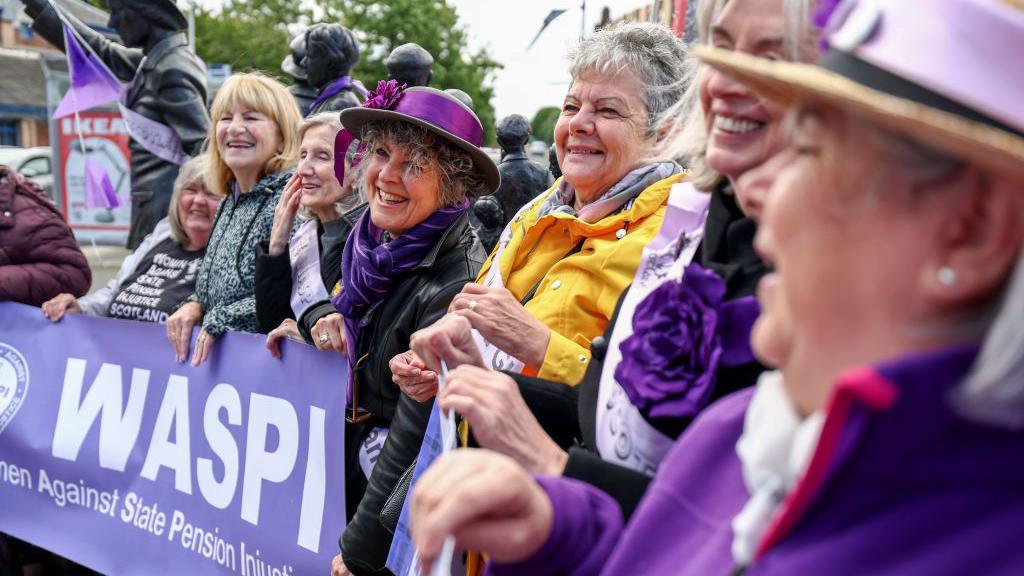The government is set to reconsider its decision to reject compensation for women impacted by changes to the state pension age.
Campaigners argue that 3.6 million women born in the 1950s were inadequately informed about the increase in the state pension age, intended to align it with that of men. While the government previously apologized for a 28-month delay in sending notification letters, it had previously dismissed the prospect of financial redress.
The reconsideration follows the emergence of a previously unseen document, which was not available to Liz Kendall, the Work and Pensions Secretary at the time of the original decision. The government has stated that this document now warrants review.
While there is no guarantee of compensation, campaigners have hailed the move as a significant step forward.
Current Pensions Secretary Pat McFadden clarified to the House of Commons that the renewed consideration does not automatically imply that financial compensation will be awarded.
“Retaking this decision should not be taken as an indication that government will necessarily decide that it should award financial redress,” he stated.
The undisclosed evidence pertains to a survey conducted in 2007. McFadden indicated that checks would be conducted to ensure that no other relevant documents or surveys had been overlooked. A timeline for the completion of this review has not yet been provided.
“I understand that people are impatient for this matter to be resolved,” he acknowledged.
“It is important that we give it full and appropriate consideration.”
Angela Madden, chair of Women Against State Pension Inequality (WASPI), commented: “The government now knows it got it wrong and we are pleased they are now trying to do it properly.
“We hope they also try to do it quickly.”
She further stated that the “only correct thing to do” was to compensate those affected without delay.
Earlier in the year, a parliamentary ombudsman recommended compensation ranging from £1,000 to £2,950 for each affected individual.
However, while the Parliamentary and Health Service Ombudsman (PHSO) could recommend compensation, it lacked the authority to enforce it, and the government subsequently rejected the recommendation.
Ministers asserted that there was no evidence of “direct financial loss” resulting from the government’s decision, and that Labour did not believe that paying a flat rate to all women at a cost of up to £10.5bn would be “fair or proportionate” to taxpayers.
The WASPI campaign has been advocating for payments of at least £10,000 per individual.
The group is currently pursuing a judicial review of the government’s decision not to provide compensation. Campaigners have raised funds for the legal challenge, and a court has capped their contribution to the government’s legal fees in the event of an unsuccessful outcome.
The case was initially scheduled to be heard in the High Court in December. The government has now formally notified the court of its latest decision.
The age at which individuals become eligible for the state pension has been progressively increasing due to rising life expectancy, and currently stands at 66 for both men and women.
Historically, men had received their state pension at age 65, while women received theirs at age 60.
The 1995 Pensions Act established a timetable to equalize the pension ages for men and women, with plans to raise the qualifying age for women to 65, phased in between 2010 and 2020.
However, the coalition government in 2010 accelerated this process. Under the 2011 Pensions Act, the new qualifying age of 65 for women was brought forward to 2018.
These increases have been met with controversy. Campaigners contend that women born in the 1950s have been unfairly impacted by the rapid changes and the manner in which they were communicated to those affected.
Latest official data ahead of the Budget later this month shows it is the highest rate since 2021.
From January 2026 employees will need to contribute a minimum of 1.5% of their earnings.
The rain and high winds experienced during stormy weather can damage homes and cause power outages.
UK Inflation has fallen from record highs but remains above the Bank of England’s 2% target.
Debt organisations say more people are seeking help after using loan apps to pay for everyday items.

